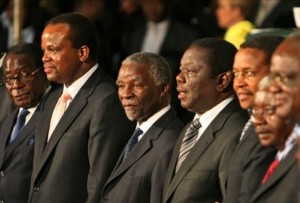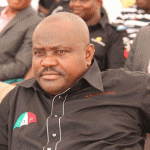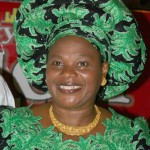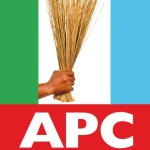Growing the Right type of Democracy in Africa
Prof.R.A Ipinyomi Tuesday, August 6th, 2013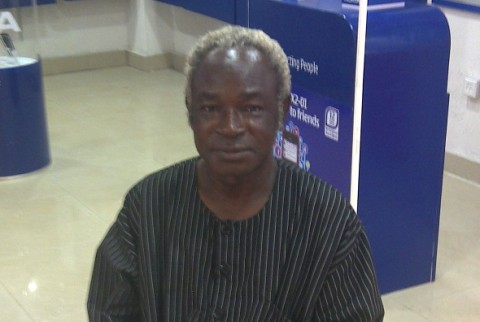
Prof. R.A. Ipinyomi, University of Ilorin, Nigeria
Usually the young hurriedly think, in their vanity, that their strength will allow them to sail through any problem but they are often deceived by their own ignorance. They foolishly rush in where angels fear to tread. When they come to understand, say after years of experience, they realize how very little they know. This principle is clearly shown in the way a student of science might be humbled. He may have graduated from high school, then from a college, and may have even obtained a master’s degree and now working on a doctorate. He has learned a great deal. However, after may be twenty years of experience in the field of chemistry or biology, he realizes there is a great deal more that he does not know, more than his accumulation of schooling and experience. If this is a student that desires to learn he begins to see everything in a much different light.
That is what ought to have happened to African politicians and their fledgling democracy. Many years after gaining independence, our impetuous spirit ought to have been dissolved, so that we see the true strength of western democracy, and the need to adapt models that are suitable and practical to Africa environment, culture and practice for development. We don’t have to fear our colonial masters or indeed any section of the international community who themselves should be looking up to us for a working socio-economic model. We don’t have to even please or embarrass anyone but be true to self governance even with African flavour. This is why the one party system in Russia, in China or in many Arab countries (until the ongoing Arab Spring) might be tolerated. Events in Iraq, Egypt, Libya, and many other places have indicated to the fact that not every part of the world needs the softly approach of the western democracy to maintain social order and development of the community. The characteristics of each community should form part of functional relations of their political system, provided it ensures one-man one-vote, and good governance.
The idea we opine here should not encumber and constrain us if a democracy practiced in Africa is slightly different from models from other places provided it ensures freedom of choices and expresses majority wishes. So far we have merely followed western democracy with the sole objective to please foreign donors, colonial masters and other friendly nations but leaving no emphasis on development, nation building and accountability to under developed rural Africans. The results have been very disastrous and counterproductive in many parts of Africa both on our ancient inherent cultures and the dignity of citizenry. The non-working of democracy in Africa has led others to castigate us as corrupt, inept, and mediocre too often whereas if allowed African have first class socio-political systems that could be used to provide full employment for its citizenry and grow a competitive healthy economic society. Africans should henceforth learn and practice political models that will be most suitable to themselves and not merely pleasing donors.
We must first jointly fully recognize the weaknesses in the America presidential democratic system as adopted and practiced here in Nigeria and in other places in weak economy countries. First it is too expensive, cumbersome and given room to only the rich and affluence in the society to get involve. It is none inclusive therefore. Secondly African politicians, like here in Nigeria, have never been able to put the society and its development as their first priority before personal comfort. In the western democracy the people came together and fashioned a system to put their society in order for both security and economic growth. It has been working well for them because it was home grown for their use. In Nigeria who has adopted the system, as in many parts of Africa, the focus is raising local lords who at the end would be looking for self comfort. We can see this in Nigeria in the monthly take-home of Presidents, Senators, governors, etc. The paper takes-home alone for these officials are exponentially different from their own legislated minimum wage for civil servants; yet to be approved or implemented by many governments.
A truly good democratic system should guide and develop its people rather than just to practice it. It must be people friendly, less cumbersome and its people could build their economic lives based on its hints. I reiterate herewith therefore that the American presidential democracy is alien to African, too expensive to practice and has been only thoroughly been abused by African politicians and used for self aggrandisements. African politicians still prefer to bury their minds and thinking in the colonial settings and only lording themselves on the people they are supposed to care and cater for. Politicians here are insensitive to African needs, welfares, development goals and future projections. The political systems they claim to run, in combination with western governments insisting on setting up only governments they can control, have set Africans against their rulers and only impoverished our society the more. To be or not to be only reminds us that our way of being is a choice, it is not forced upon nor naturally occurring, it is a conscious decision that we make. That conscious decision will not be adequate if it continues to ignore the current and future aspirations of the people.
The ongoing faceoff between pro and anti-Morsi in Egypt may be used here as relevant to Africans. In the one hand both the western democracies and many youths of Egypt were taken by surprise such that the Brotherhood emerged at the end of the first revolution last year. The Muslim Brotherhood’s crime is their running away as a winner takes all (western democracy styles) with little interest on the reasons for the revolution. Under Morsi Egypt soon found itself better off under the former long term maximum leader. Most societies now prefer to have a political system that will be inclusive, proactive, consisting of components of development parameters, being competitive in the community of nations, and people friendly. Religious States or strict communisms, where you deny the freedom of the people, are going to be less acceptable henceforth. Communism has failed in many nations; they will still fail in China, Cuba and other places. However, if we must adapt any of the western democracies, the adapted version must be less expensive, participatory in practice and accessible to all, inclusive and laying a good economic foundation for its citizens.
Prof. R.A. Ipinyomi,
ipinyomira@yahoo.co.uk or/and raipinyomi@unilorin.edu.ng
Related Posts
Short URL: https://www.africanexaminer.com/?p=392


